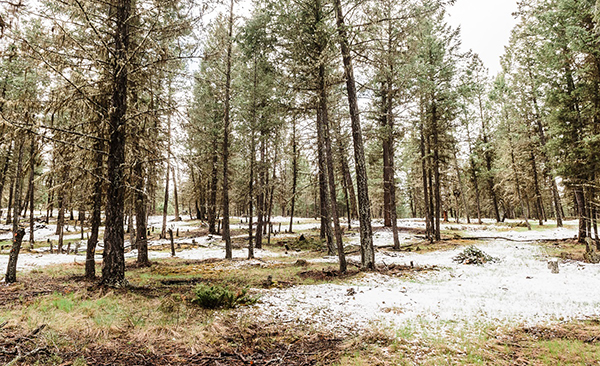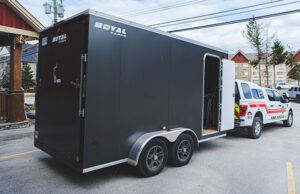Home »

Ready, set, prevent
 Communities take proactive measures to minimize risk of wildfires
Communities take proactive measures to minimize risk of wildfires
Wildfire. While it plays an important role in maintaining healthy ecosystems, it can pose a threat to communities. Effective preparation is essential. Organizations throughout the Basin are implementing a variety of strategies to manage wildfire risk. These proactive measures aim to prevent wildfires when possible and respond effectively to contain and extinguish them quickly, thereby minimizing damage and enhancing community resilience.
Supported by the Trust, communities have created community protection plans, reduced wildfire fuels on lands that border communities, trained wildfire fighters and purchased essential equipment.
Check out some of these efforts, supported by the Trust:
Shuswap Band
Shuswap Band reduced wildfire fuels on 52 hectares of land during a project supported by the Trust and the Province of BC that concluded at the end of 2022, with activities like thinning, pruning, chipping and hauling. During the planning and treatment, the project supported 10 jobs. By protecting critical resources like creeks, minimizing forest fuels like common juniper and using FireSmart theories—plus developing a solid team equipped with the proper training and proper tools—the Band has greatly reduced the wildfire threat in the area.
“Residents directly adjacent to and in proximity of this wildland-urban interface unit have enthusiastically provided positive feedback on the project, as it has successfully reduced the threat of wildfire for homeowners, communities and Shuswap Band. The Band has been leading local fuel-management programs and mitigation projects for about 13 years now, and the workers, equipment and tools for conducting this work are now in place,”said Sierra Stump, Director of Lands & Public Works, Shuswap Band.
Radium Hot Springs

In spring 2024, the volunteer firefighters of the Radium Hot Springs Fire Department were able to train with an additional resource: a structure protection unit purchased with Trust support. Used to store wildfire-fighting items, from hoses to sprinklers, and haul them to where they’re required, the trailer helps residents rest assured that the department is well equipped to protect them and their community from wildfire.
“The benefits of a trailer versus the old engine are more accessibility and easier access to equipment. Several members of the team can now go into the trailer at the same time, get what they need and quickly return to the site. Using a truck and trailer will allow us to better protect Radium, as we can set up sprinkler protection where it’s needed most,” said Trevor Carr, Fire Chief, Radium Hot Springs Fire Department.
Hills

Surrounded by forests, the community of Hills is very aware of what a major wildfire could mean for it and its residents. This is why, in 2021 and 2022, the Hills Emergency Services Society contracted the development of a fuel management prescription and implemented it on Hills’ community parkland, as well as had a FireSmart representative conduct property assessments. Supported by the Trust and the Province of BC, the project created nearly a dozen short-term wildfire-mitigation jobs, with training provided to these workers and to firefighting volunteers from Hills, New Denver, Burton and Edgewood.
“The on-the-ground work in the treated area has become an easily accessible showcase for what a fuel-managed (or ‘FireSmart-ed’) area looks like. The project has also built capacity and skills within the area by offering certified courses to volunteers from Hills and surrounding communities, increasing understanding of wildfire behaviour and the responses to it,”said Richard Allin, Treasurer, Hills Emergency Services Society.
Lead image: The Shuswap Band reduced wildfire fuels on 52 hectares of land through pruning, thinning, chipping and hauling. The project supported 10 jobs for community members. Columbia Basin Trust photos
Columbia Basin Trust







